Tag: Africa
-

Review: ‘The Ladies with Style’ – ‘Banyana ba Style’ (2022)
The Ladies with Style (Banyana ba Style) was showcased at the BrandStorytelling 2024 event in Utah, which ran in parallel to Sundance. The event honored this film from first-time Director Caroline Brouckaert, because it so effectively melded entertainment, impact, and purpose, and because it was their first selection to get distributed by a major platform…
-

Pentecostal football makes good in ‘Prophetess’ (2021)
Prophetess (also spelled Prophe+ess) is a comedic premise with a lot of dramatic situations from one of Nigeria’s most popular new directors, Niki Akinmolayan. I think the comedy is supposed to be a farce with exaggerated situations, but I was never quite sure. In fact, there were so many things going on that I had…
-
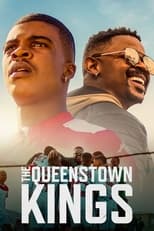
‘The Queenstown Kings’ is mildly entertaining (2023)
The Queenstown Kings is a lengthy and busy story, where 3 men as father, son, and stepfather enact so many plot points, they are almost too numerous to count.
-
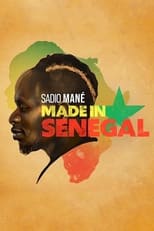
Sadio Mané at his best in ‘Made in Senegal’ (2020)
Sadio Mané: Made in Senegal was originally meant to be a short video clip, but his boy-makes-good story was so compelling, the filmmakers turned it into a feature film. We learn how Mané grew up in a small village in Senegal, where farming was the only future available to children. Little Sadio though, was determined…
-
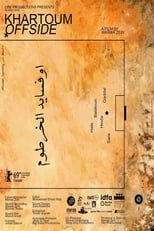
‘Khartoum Offside’ (2019) intimate but confusing
Khartoum Offside is Writer-Director Marwa Zein’s first feature length film and has won a number of awards. I just don’t know enough about the film industry to understand why.
-
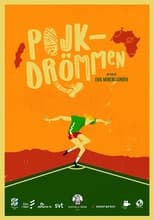
‘Pro in Africa’ (2020) revisits a boy’s dreams
In the documentary Pojkdrömmen, Writer-Director Emil Moberg Lundén tells his own story of his last-ditch all-out attempt to become a pro footballer at age 30. It’s an entertaining film under an hour, as Emil is the anti-Zlatan, an attractive, talented man who comes to question his self-centered goal in the context of third world problems.
-
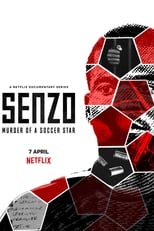
Review – ‘Senzo: Murder of a Soccer Star’ (2022)
It’s not often that I rate a Netflix Original so low, as usually Netflix has a minimum level of quality. But somehow, the docuseries Senzo: Murder of a Soccer Star got past the QA department. Yeah, it’s a howler.
-
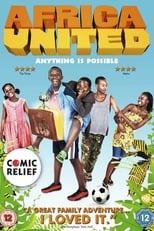
‘Africa United’ (2010) is a modern fairytale
Africa United starts off with Dudu, a young AIDS orphan in Rwanda, lecturing even younger boys on the use of condoms to protect against the disease. He then blows up the condom and turns it into a homemade soccer ball.
-

‘Matthews’ (2017) admire the man but skip the film
The career of Sir Stanley Matthews is so long — he retired at age 50 — and the footage so slim that it is hard to understand why Gary Lineker calls Stanley “the Messi of his day”. It’s a difficult mission for the documentary Matthews – The Original No. 7. How do you make a…
-

Social change through ‘Zanzibar Soccer Dreams’ (2016)
Watching Zanzibar Soccer Dreams via the virtual 2020 Women Sports Film Festival, I suffered a little deja-vu, wondering if I had already seen this film. It turns out that this documentary, by two professors in the UK, came out only a year after New Generation Queens: A Zanzibar Soccer Story was released by a couple of young American…
-
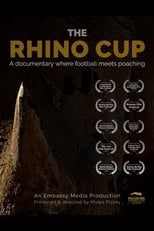
‘The Rhino Cup’ (2019) – can football reduce poaching?
When anti-poachers asked a village how to help, the answer was a football league. As a child, Matt Bracken developed a love for Africa’s wildlife, which lead to his becoming a safari travel specialist. From there, he became an anti-poaching ranger for ProTrack in South Africa. Protrack has 300 rangers in Mozambique who fight rhinoceros poachers.
-

‘Alive & Kicking: The Soccer Grannies of South Africa’ (2016)
In this charming documentary, community organizer and radio show presenter Beka Ntsanwisi explains how and why she started Vakhegula Vakhegula, a soccer club for grannies in the region of Limpopo, South Africa. Suffering from chronic diseases or traumas, these Vakhegula (grannies, also called gogos) found football made them healthier and lifted their focus away from…
-

‘Streetball’ (2010) best Homeless World Cup movie
Streetball is not just another homeless world cup film, it is the best of its genre. Despite being 10 years old, this documentary is fresh, vibrant, and still relevant in its reflection of the world today. Streetball also stands out as one of the few homeless world cup (HWC) films where the soccer is as engaging…
-

Oscar-nominated ‘Nefta Football Club’ (2018)
Nefta Football Club stands out as being the second*** soccer movie to win an Oscar nomination (that I know of). Nominated in the 2020 Best Live Action Short Film category, Writer-Director Yves Piat has created a visually stunning and engaging short that leads to a whimsical but virtual punch line.
-

‘Lost in Africa’ (2010) doesn’t flinch
Behind the benign title of Lost in Africa is a thriller that embodies every mother’s worst nightmare: her child vanishes. It’s not really a soccer movie as much as it is a reflection of the hard and dangerous life in Kiera, a Kenyan shanty town.
-
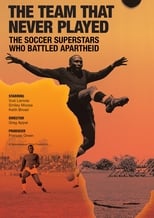
The story you never heard about ‘The Team That Never Played’ (2010)
If you are looking for a great idea for a soccer movie, you should buy the rights to this 10 year old documentary The Team That Never Played. Gather up the players interviewed by Writer-Director Greg Appel and fill out their stories while they can still be recalled. This is history that deserves to be…
-

‘Funke!’ (2018) is an Interesting view of Nigerian life
It’s hard to believe that in Sep-2018, two movies were released with the title Funke. This review is about the Nigerian feature film directed by Filmboyz Yemi Morafa and Friday Nwagwu. The other film is a documentary on Los Angeles restauranteur Evan Funke.
-

‘Fintar o Destino’ (1998) is a beautiful time capsule
Fintar o Destino is a strikingly beautiful film, but not at all in a visual sense. Filmed in standard definition, the story immerses you in Cape Verdean village life and the regrets of Mané (Carlos Germano), a frustrated 50 year old former footballer. He didn’t leave the island when he had the chance, and to…
-
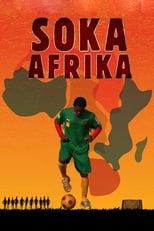
‘Soka Afrika’ (2011): well-meaning but misinformed
The problem of human trafficking through football, also known as football trafficking, has been covered in the media for almost 10 years. In Soka Afrika, Suridh Hassan puts together a sensitive portrayal of 2 teenage footballers trying to make a career in Europe in 2009. However, I do not recommend this documentary because it puts…
-
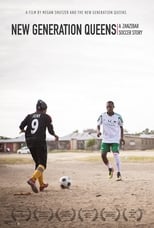
‘New Generation Queens’ (2015) – when women can’t play football
Megan went to Zanzibar and was looking for a pickup game. She found a women’s team called the New Generation Queens. They were getting chased off fields because Zanzibar is 99% Muslim, and women aren’t supposed to play football. But they prevail, and this pleasant little film, with an ethnographic story and a long title,…
